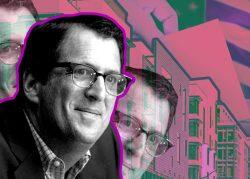San Francisco voters have decided to levy a special tax on apartments that sit empty for more than six months, according to newly reported results from last week’s election.
A similar tax that also included single-family homes and duplexes was approved by a wider margin in the East Bay city of Berkeley, while a vacancy tax in Santa Cruz was defeated.
The results of the Santa Cruz vote against its proposed vacancy tax and the Berkeley vote in favor were clear shortly after the election on Tuesday, but it took nearly a week to count enough votes to declare San Francisco Measure M’s victory. On Monday afternoon, it was leading by 20,000 votes, or 53 percent in favor, and with only 38,000 votes still left to count, so the victory remains likely to stand. Measure D, the YIMBY-sponsored affordable housing streamlining initiative, is still down by about 7,000 votes and appears likely to be defeated.
“With most of the ballots now counted, the Empty Homes Tax has passed with a decisive mandate from San Francisco voters, despite being outspent by a margin of 3 to 1,” Supervisor Dean Preston, who spearheaded the initiative, said via email. “It’s clear that people are fed up with tens of thousands of homes sitting vacant while thousands of people are sleeping on the streets.”
The exact number of units impacted by the legislation is a matter of debate. In a response to a request for information from Preston’s office, the city’s Budget and Legislative Analyst’s Office said in a January report that in 2019 more than 40,000 housing units were vacant in the city, or about 10 percent of the city’s total housing stock. Yet a September report from the Office of the Controller found that — due to exemptions for single-family homes and duplexes, dwellings primarily used as vacation rentals, and those having recently finished construction — the actual number of units impacted would be less than 4,000.
The report further posits that almost all owners would pay the tax — which would begin in 2024 and range from $2,500 to $5,000 in that first year, depending on the size of the unit — or register the vacant unit as a short-term rental, rather than drop rents and be locked into a low rate for the lifetime of the tenancy. With the tax going up to a maximum of $10,000 in 2025 and $20,000 in 2026, the legislation could bring in up to an estimated $15 million annually, the report said, which will go to the newly established Housing Activation Fund for rental subsidies and buying and rehabilitating affordable housing.
“It’s unfortunate that the voters continue to view property owners as the ATM to fund all of the city’s policies,” said Charley Goss of the San Francisco Apartment Association.
Goss said via email that he wasn’t sure how many of the organization’s members would be impacted but that “certainly small mom-and-pop owners would be impacted more than most” and that he had “real concerns about the tax applying to units rented to family members, and how that will impact owners who live in a building together as an intergenerational household.”
The association had been running a joint campaign against Proposition M and Proposition O, a parcel tax to fund City College, which lost by a wide margin. Goss said the “mixed election results” meant that property owners would be spared an even larger tax increase. At the same time, he said, advocates for multifamily owners believe the city should be doing more to make homeownership affordable, “rather than continuing to make our city the most expensive place to live and do business in America.”
Read more


